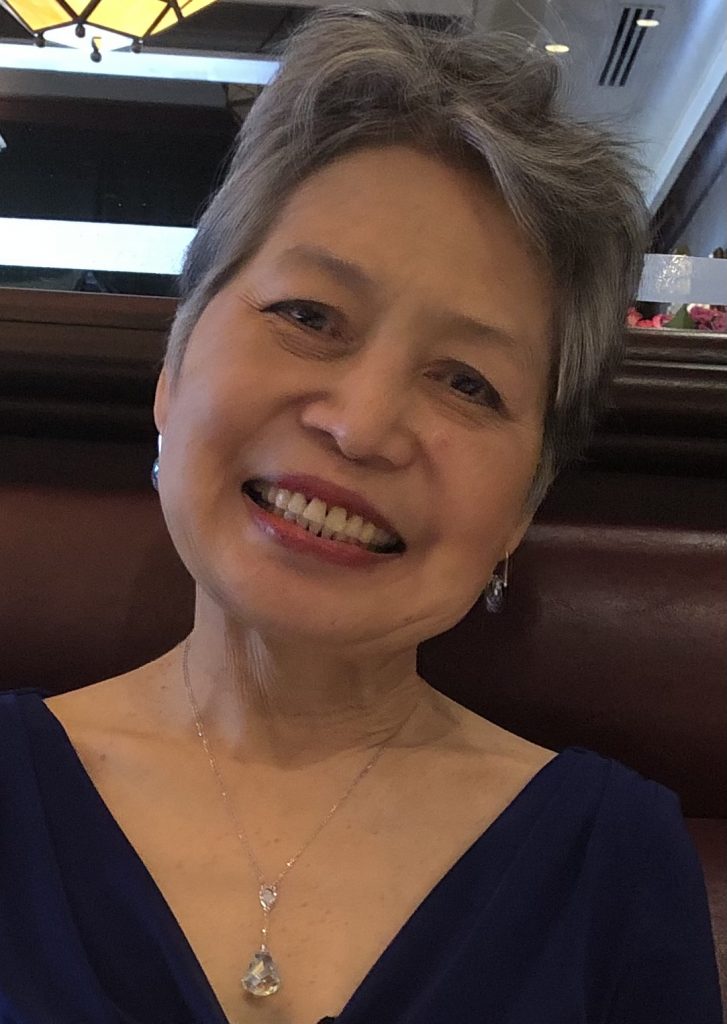
WHAT LED YOU TO BECOME AN ACTUARY? AND WHAT ATTRACTED YOU TO THE PROFESSION?
I was a math major in college in the Philippines when I learned about the actuarial profession from one of my professors and mentors. I was attracted by the business applications and real-world implications of my math education. At age 18, I traveled to the U.S. to pursue graduate studies at the University of Michigan, and a year later started as an actuarial trainee at New York Life.
DESCRIBE A PROFESSIONALISM-RELATED CHALLENGE THAT YOU HAVE FACED IN YOUR CAREER. HOW DID YOU HANDLE IT?
I remember a time when we were being outbid on single premium pension plan closeouts by a very large insurer (long since defunct), apparently due to an improbably high interest rate implicit in its quote. In hindsight, we made a prudent decision to avoid bidding wars unless it made financial sense for both the plan and our company. There were also a few times when I would discover my error in a certain input or algorithm in a programming application that we used, and I would point my error out to my supervisor and request that we put a notice out to users about our corrections.
WHAT ADVICE DO YOU WISH YOU WERE GIVEN WHEN YOU WERE AT THE BEGINNING OF YOUR CAREER?
To stay away from “politics” in the workplace—that is, value cooperation and knowledge-sharing, respect for and acknowledgment of differences in views, mentoring so that others may grow under and with your leadership, and last, but not least, life-work balance (family first, next to God, before work).
TELL US ABOUT A TIME WHERE YOUR ACTUARIAL EXPERTISE INFLUENCED AN IMPORTANT DECISION IN YOUR WORKPLACE.
It was later in my career after my retirement from the private sector, and during my time as a chief actuary in the federal government, where we discussed my agency’s national savings education campaign, particularly for Americans nearing or at retirement, and how it could benefit from an online tool where the public user can consolidate financial income, savings, assets, and investments from all sources and estimate additional savings needed for future retirement spending and needs. As the only in-house actuary at my agency, I ultimately developed this tool with actuarial formulas and working with in-house programmers. I also set up self-checking mechanisms and a clear statement on assumptions used as a basis for the projected results.
WHAT IS ONE OF THE BIGGEST LESSONS YOU’VE LEARNED IN YOUR CAREER?
Learning and keeping active are continuous and necessary to advance both in the profession and life in general. Actuaries with their risk-oriented aptitude and skill sets provide important input to other people’s lives and the communities where we live.
WOULD YOU LIKE TO SHARE ANYTHING ELSE WITH ASPIRING OR NEW ACTUARIES, OR THOSE INTERESTED IN VOLUNTEERING FOR THE ACADEMY?
Volunteering taught me early on the values of being proactive; e.g., learning about emerging concepts and trends, developing and growing an informal professional and social network, and personal satisfaction in making a difference.
SHARE A LITTLE ABOUT YOURSELF. WHAT ARE SOME OF YOUR HOBBIES OR OTHER PERSONAL INTERESTS?
I’m still an active volunteer in the actuarial profession, venturing into new practice areas where I believe basic actuarial principles apply, and learning about today’s challenges. Most other times, I join my husband (also retired) in our daily walk and other activities outdoors. While he has his own other interests, I enjoy reading digital book loans from the local library, virtual prayer/Mass or Bible study, Sudoku, and crossword puzzles.
We have 4 grown, independent sons, who work and live with their families away from us. Before the pandemic, we often traveled for family visits as well as for leisure. While we have continued to visit albeit virtually, we hope to do so in person soon as it is safe again to travel.

